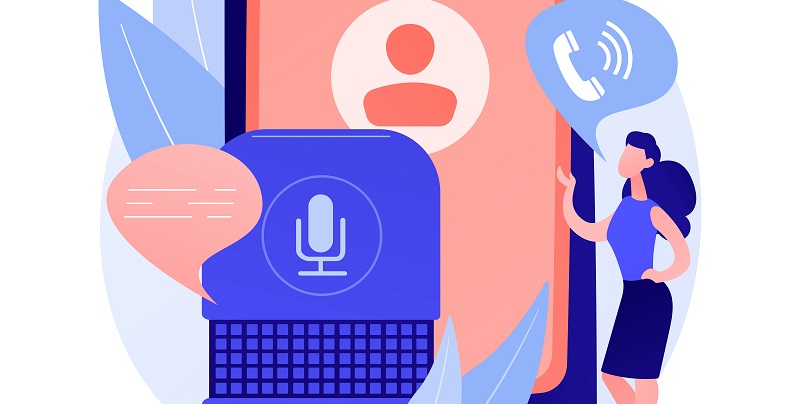In today’s competitive business landscape, companies are constantly seeking ways to stand out and provide exceptional customer experiences. One strategy that has gained traction is the use of personalized Interactive Voice Response (IVR) messages. By combining various contact center technologies, companies can create tailored messages that not only impress callers but also help de-escalate frustrating situations. This article explores the importance of personalized IVR messages and how they can enhance the customer experience while streamlining operations.
Combining Contact Center Technologies for Personalized Messages
To take IVR to the next level, companies can leverage different contact center technologies in a clever way. By integrating customer relationship management (CRM) systems, customer data can be used to personalize messages based on an individual caller’s preferences, order history, and status. This approach ensures that each interaction is relevant and meaningful, leaving a lasting impression on callers.
Creating a Positive First Impression and De-escalating Frustrating Scenarios
Callers often initiate contact with specific needs or issues. Personalized IVR messages can address their concerns right from the start, making a great first impression. By analyzing the caller’s phone number or using speech recognition technology, the system can identify if there are any ongoing service problems in their area. This proactive approach shows that the company is attentive and actively working to resolve issues, which can greatly boost customer satisfaction.
Proactively Addressing Issues with IVR Menu Setup
One effective way to address issues proactively is through a well-designed IVR menu. By offering options related to common customer concerns, such as expected delivery dates, order cancellations, and modifications, companies can guide callers to the appropriate resources efficiently. This streamlines customer support operations and ensures that callers receive prompt and accurate assistance, reducing frustration and wait times.
By integrating location-based data into the IVR system, companies can quickly identify service problems specific to a caller’s geographical area. This information can be incorporated seamlessly into personalized IVR messages, allowing companies to provide relevant updates or suggestions even before the caller articulates their issue. This level of proactivity demonstrates a commitment to customer satisfaction and goes a long way in building loyalty.
Checking Callers’ Phone Numbers for Ongoing Orders
Personalized IVR messages can be further enhanced by leveraging caller information related to ongoing orders. By cross-referencing caller phone numbers with order databases, the IVR system can proactively provide updates on order status or allow callers to make modifications. This not only saves time for both the customer and the company but also eliminates frustration that often arises from repetitive or redundant conversations.
Offering Options for Order-Related Inquiries, Cancellations, and Modifications
Taking personalization to the next level, companies can incorporate specific IVR options tailored to order-related inquiries, cancellations, and modifications. By segmenting these options, callers have a streamlined pathway to resolution, reducing confusion and ensuring the efficient handling of their requests. Such customization not only enhances the overall experience for customers but also leads to significant improvements in customer satisfaction and loyalty.
A key element of delivering exceptional customer experiences is catering to individual language preferences. Personalized IVR messages can adapt to callers’ language settings from the first interaction, ensuring a seamless experience. Automated language recognition technology can be integrated into the IVR system to detect and greet callers in their preferred language. This level of personalization showcases respect for callers’ cultural diversity and enhances communication effectiveness.
Utilizing Automated Language Recognition in Inbound Email Management
Personalization extends beyond phone interactions. By incorporating automated language recognition into inbound email management systems, companies can efficiently route and respond to customer emails in the appropriate language. This approach not only improves response times, but also helps companies meet the linguistic needs of their diverse customer base.
Greeting Known Callers Based on Provided Information
Building strong relationships with customers requires acknowledging their loyalty and the effort they put into providing information. Personalized IVR messages can recognize known callers and greet them based on the information they have previously provided. This level of personalization shows appreciation and ensures a smoother customer journey, creating a sense of familiarity and trust.
The benefits of tailored IVR messages are manifold. By employing personalization in IVR systems, companies can significantly enhance customer experiences, streamline operations, and even improve security. Callers feel valued and appreciated, leading to increased customer satisfaction, loyalty, and reduced churn rates. Moreover, automation and intelligent routing save time and resources for both the company and the customers. Additionally, personalized messages increase security by minimizing the risk of unauthorized access to sensitive information.
Personalized IVR messages have the potential to transform customer experiences and enhance operational efficiency. By leveraging contact center technologies, companies can create tailored messages that address individual concerns, making a positive first impression and de-escalating frustrating scenarios. Proactive issue resolution, personalized language preferences, and intelligent routing options are just a few ways personalized IVR messages can streamline operations while improving customer satisfaction. By investing in tailored IVR systems, companies can differentiate themselves in a crowded marketplace and gain a competitive edge in delivering exceptional customer experiences.

